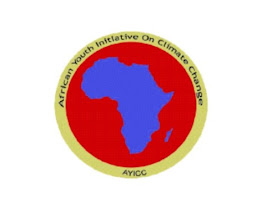SOUTH AFRICAN FIRM WINS WANGARI MAATHAI INSTITUTE FOR PEACE AND ENVIRONMENTAL SUSTAINABILITY (WMI) ARCHITECTURAL DESIGN COMPTITION
 In quest to bring environmental sustainability to the next level, Nobel Laureate Wangari Maathai is to bring a peace and environmental institute in Kenya; Wangari Maathai Institute for Peace and Environmental Studies at the University Of Nairobi School Of Agriculture at Lower Kabete. ‘A Green Campus’ as she puts it is going to see issues of peace and environmental justice being taught. The University of Nairobi has allocated the Green Belt Movement up to nearly 50 acres of land where the institute is to be erected. This was unveiled by Achim Steiner, Executive Director of UNEP accompanied by Dr Reuben Mutiso, Chairman of the panel of International jurors, who announced the winning architectural design at the Awards Ceremony held today at the Louis Leakey Auditorium, Nairobi National Museum.
In quest to bring environmental sustainability to the next level, Nobel Laureate Wangari Maathai is to bring a peace and environmental institute in Kenya; Wangari Maathai Institute for Peace and Environmental Studies at the University Of Nairobi School Of Agriculture at Lower Kabete. ‘A Green Campus’ as she puts it is going to see issues of peace and environmental justice being taught. The University of Nairobi has allocated the Green Belt Movement up to nearly 50 acres of land where the institute is to be erected. This was unveiled by Achim Steiner, Executive Director of UNEP accompanied by Dr Reuben Mutiso, Chairman of the panel of International jurors, who announced the winning architectural design at the Awards Ceremony held today at the Louis Leakey Auditorium, Nairobi National Museum.DHK Architects (Pty), based in Cape Town, South Africa produced the winning design of the Green campus ahead of the four other finalists that were reviewed anonymously by a panel of DHK Architects (Pty), based in Cape Town, South Africa produced the winning design of the Green campus ahead of the four other finalists that were reviewed anonymously by a panel of jurors. The winners received a cash award of Ksh 750,000/-. Receiving the cheque, Peter Stokes said he was overwhelmed to have won the opportunity to design the Wangari Maathai Institute for Peace and Environmental Studies. He commended his partners in the consortium, Land Use Consultants of the UK and WSP Group, a founding member of the Green Building Council of South Africa. The jury, in their report commended DHK Architects (Pty) for their thoroughness in resolving the different aspects of the scheme from concept to details. Reading the Jury report, Project Advisor and jury member, Phillip Kungu said “The jury were particularly impressed with the land use master plan, the sensitive treatment of ecological issues and the extensive handling of sustainable design concepts. The winning design was unanimous,” he concluded. The first runner-up was Triad Architects of Nairobi.
Honourable Mentions were awarded to Beglin Woods, K&M Archplans Limited and Pharos Architects and all based in Nairobi. The Architectural Design Competition was endorsed and sanctioned by the Architectural Association of Kenya (AAK) and the Board of Registration of Architects of Quantity Surveyors (BORAQS). Other members of the jury included Arch. Steven Oundo, the Chairman Architectural Association of Kenya (AAK), Arch. Dr. Gideon Mutemi Mulyungi, the Secretary Ministry of Public Works, Dr. Sylvester Masu, Ms Priyanka Kochhar of The Energy and Resources Institute (TERI) of India and Dr. Lars Reutersward Director Global Division, UN-HABITAT. The WMI campus is envisioned as a functional and inspiring hub of activities in the natural resource management area and education for sustainable development and should therefore be particularly appealing in its aesthetics and environmental considerations. It is expected to meet stringent carbon foot print criteria achieving close to 100% carbon neutrality. An initiative of the Noble Peace Laureate, Prof Wangari Maathai and the University of Nairobi (UON), the green campus will be built on a 50-acre land at the UON’s College of Agriculture and Veterinary Sciences, Kabete Campus.
Post by: Joshua Minai
Post by: Joshua Minai

Comments
Post a Comment